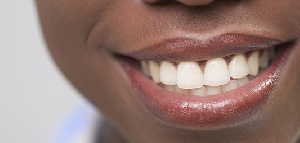Dr. Kakra Bonsu Appiah, Head of the Dental and Oral Surgery Department at Tema General Hospital, has advised parents to introduce their children to dental care as soon as their first teeth appear.
Dr. Appiah emphasized that early oral hygiene practices could prevent long-term dental problems and ensure strong, healthy teeth for life.
He told the Ghana News Agency (GNA) in an interview that the best time to start taking care of a child’s teeth was as soon as the first tooth emerged. He stated that dental care was essential for ensuring proper oral health and preventing potential issues that may arise as the child grows.
He added that introducing children to dental care also provides parents with guidance on proper oral hygiene practices, including the correct way to clean their child’s teeth and gums, the importance of fluoride, and dietary habits that support strong, healthy teeth.
He said establishing good oral hygiene habits from the beginning prevents cavities, gum disease, and other dental issues while setting the foundation for a lifetime of healthy living. He also encouraged limiting sugary diets, as they are a leading cause of cavities.
Dr. Appiah recommended brushing twice daily with fluoride toothpaste, flossing once a day, and ensuring that children eat a balanced diet. He urged caregivers to be role models by practicing good oral hygiene themselves.
The dentist also cautioned against prolonged thumb-sucking, a common habit among young children. He explained that although it might seem harmless, it could cause the development of an open bite, where the upper and lower front teeth do not meet properly when the child closes their mouth.
He said this misalignment could affect a child’s ability to bite and chew food effectively and might also lead to speech difficulties, such as problems with pronunciation and articulation.
The dentist pleaded with parents to ensure that their child’s dental development remains on track to reduce the risk of future oral health issues.
Health News of Wednesday, 26 March 2025
Source: GNA













